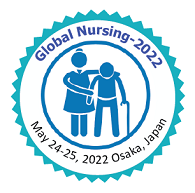
Dr. Kalliopi Megari
Dr.
University of Western Macedonia
Greece
Biography
Dr. Kalliopi Megari Clinical Neuropsychologist Counselling psychologist Health Care Specialist International Representative- International Neuropsychological Society EDUCATION 1st Bachelor Degree Nursing School, Technological Educational Institute of Thessaloniki, Greece 2nd Bachelor Degree (University Diploma) School of Psychology, Aristotle University of Thessaloniki, Greece Master’s Degree Program, Aristotle University of Thessaloniki, Greece. School of Psychology & School of Medicine. Doctoral Degree Doctorate Degree Program, Aristotle University of Thessaloniki, Greece. School of Psychology & School of Medicine. CLINICAL EXPERIENCE Cancer Hospital of Thessaloniki “Theageneioâ€, Clinic of Radiation Therapy Treatment. Prison of Thessaloniki Diavata. School of a second chance. February 2013-Now. Counseling psychologist Group Parents Counselling. March 2014-2015. Adult educator. Head of the center of creative activities for children with disabilities, Municipality of Kalamaria, Thessaloniki, Greece. November 2015-Now RESEARCH EXPERIENCE Marie Curie Reintegration Grant (EUROPEAN COMMISSION): Administration of measures for neurological and psychiatric patients. August 2011- December 2011. Aristotle University of Thessaloniki Grant: Neuropsychological decline in the elderly. February 2013-December 2013 Aristotle University of Thessaloniki Grant: Postoperative cognitive decline following cardiac surgery. February 2014-December 2014 ARISTOTLE UNIVERSITY OF THESSALONIKI GRANT: Postoperative delirium and cognitive dysfunction following cardiac surgery. January 2015-September 2015
Research Interest
1)Clinical Neuropsychology topics, especially postoperative cognitive functions of cardiac surgery patients and cognitive function of central nervous system diseases 2)Health Psychology topics, especially chronic diseases and quality of life 3)Counseling psychology of vulnerable groups of people especially children and adults with disabilities and their families and prisoners 4)Cognitive Psychotherapy o Person-centered Psychotherapy 5)Positive Psychology

